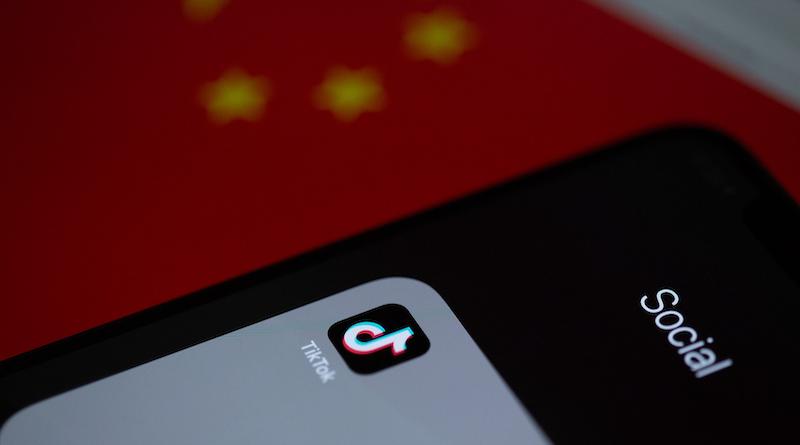White House Supports Bill Banning TikTok
By RFA
By Alex Willemyns
The White House has announced its support for a new bipartisan bill to allow the U.S. secretary of commerce to ban foreign-owned technology like TikTok. The announcement came Tuesday as the bill was being introduced by a group of eight senators from both parties.
National Security Adviser Jake Sullivan said in a statement that the Biden administration backed the “urgent” passage of the Senate’s new “Restricting the Emergence of Security Threats that Risk Information and Communications Technology Act,” or RESTRICT Act, which would grant the executive branch the legal authority to ban TikTok.
Such a bill, Sullivan said, would “empower the United States government to prevent certain foreign governments from exploiting technology services operating in the United States in a way that poses risks to Americans’ sensitive data and our national security.”
Speaking during the press conference to introduce the bill, Sen. Mark Warner, a Democrat from Virginia and chair of the Senate intelligence committee, said the RESTRICT Act would not only target TikTok.
“Everybody’s talking about TikTok and the ability of that platform to be used by the Communist Party both to take on data, but also potentially as a malign influence and propaganda tool,” Warner said.
“But before there was TikTok, there was Huawei and ZTE – and before that, there was Russia’s Kaspersky Labs. So what we are trying to deal with here is the risk of insecure information and communication technologies,” he said.
He also stressed the bill, if passed, would introduce a “rules-based process” to assess foreign-owned technology, and that the commerce secretary would be granted tools less heavy-handed than bans.
The Senate bill is the latest in a series of pieces of proposed legislation aimed to ban TikTok, with House Foreign Affairs Committee Chairman Michael McCaul, a Republican from Texas, most recently introducing his own bill last week. It was opposed by Democrats.
Whack-a-Mole
The strong White House and bipartisan support for the RESTRICT Act in the Senate suggests it might succeed where others have failed.
The bill was also introduced on Tuesday by three other Democratic senators – Joe Manchin of West Virginia, Michael Bennet of Colorado and Tammy Baldwin of Wisconsin – and four Republicans – John Thune of South Dakota, Mitt Romney of Utah, Jerry Moran of Kansas and Dan Sullivan of Alaska.
Each of the senators noted the bill was not aimed just at TikTok, with a few saying they wanted the bill’s rules to help authorities avoid a game of “Whack-a-Mole” with copycat services arising.
But each senator also struggled to keep their focus off TikTok.
“Truth is, with 100 million Americans daily on TikTok, on an average of 90 minutes a day, this is an issue,” Warner said after stressing TikTok was not the bill’s sole target. “I imagine most of you would like your networks to get 90 minutes a day from 100 million Americans.”
Thune, who is also the Senate minority whip, said the bill “does away with this Whack-a-Mole” where U.S. authorities are forced to evaluate new foreign-owned technology companies month after month.
Its rules would make clear what types of security issues could lead to a ban, he said, and in doing so prevent such technology taking off.
“I’ve long been concerned about how every social media company uses the data it collects on users,” Thune said. “But I’m particularly concerned about TikTok’s connections to the Chinese Communist Party, which repeatedly – repeatedly – spies on American citizens.”
He said that “China-based employees of [TikTok owner] ByteDance have repeatedly accessed nonpublic data” of U.S. citizens “despite TikTok saying to the contrary,” and added he did not trust any pledges given by the Beijing-based company about TikTok’s safety.
“The Chinese Communist Party has proven over the last few years that it is willing to lie about just about everything,” Thune said.
Bipartisanship
Brooke Oberwetter, a spokesperson for TikTok, said the executive branch already had the power to force TikTok to change its operations, and noted the social media platform was in talks with the Committee on Foreign Investment in the United States (CFIUS).
“The Biden Administration does not need additional authority from Congress to address national security concerns about TikTok: it can approve the deal negotiated with CFIUS over two years that it has spent the last six months reviewing,” Oberwetter told Radio Free Asia.
“We appreciate that some members of Congress remain willing explore options for addressing national security concerns that don’t have the effect of censoring millions of Americans,” she added. “A U.S. ban on TikTok is a ban on the export of American culture and values to the billion-plus people who use our service worldwide.”
Bennet, the Democrat from Colorado, said that he believed the bill would pass given its bipartisan support, and would end what he said was 50 years of light treatment of Beijing from Washington.
Romney, a former presidential candidate, said such bipartisanship “says that Congress has recognized that China is not our dear friend.”
Sullivan, the Republican from Alaska, echoed that view.
“Yeah, there’s a lot of dissension and partisanship here,” he said. “One area where there’s very little partisanship is the recognition, in a bipartisan way, of the serious nature of the Chinese Communist Party threat. We are very united as senators on this topic.”

